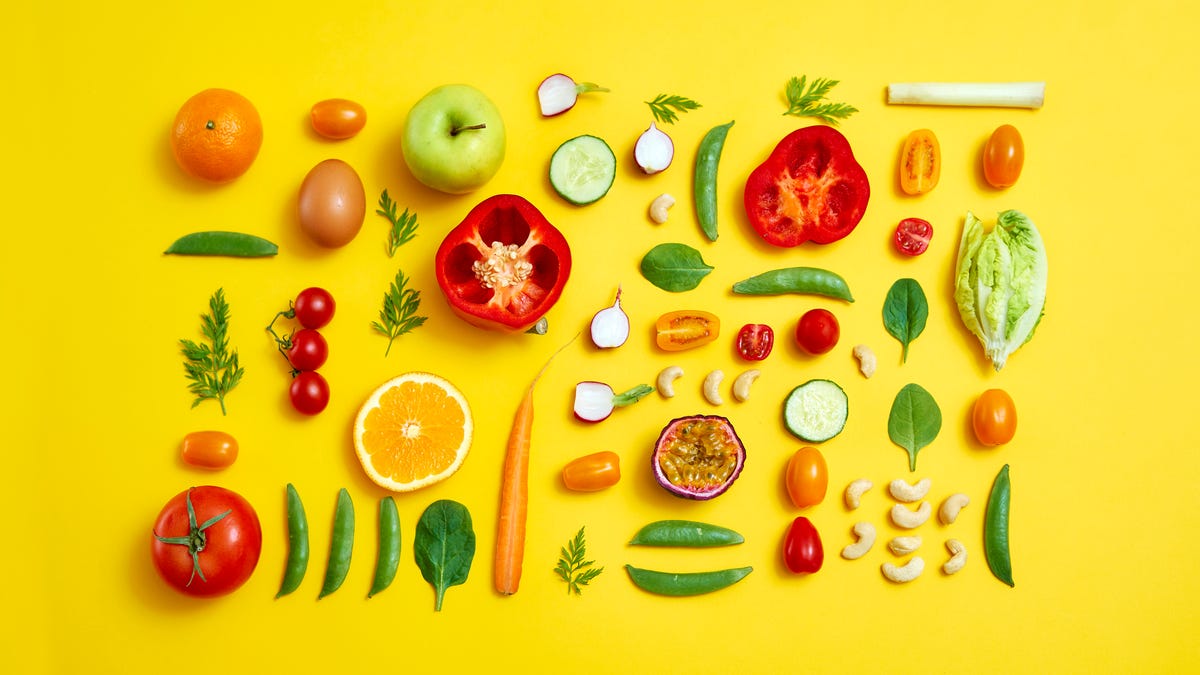Instacart, DoorDash Partner With White House in Latest 'Food Is Medicine' Push
Finding healthy foods on an app might get a little easier. As part of the same initiative, the federal government proposed changes to food labeling.

The Biden administration on Friday announced an update to its initiative to reduce diet-related diseases and increase food security. Companies, including DoorDash and Instacart, are participating in the push to get people to eat more healthy foods.
Instacart, which launched a new model called Instacart Health last fall, is wading deeper into the food is medicine approach by enabling health care providers to make "virtual food pharmacies" so they can "deliver actionable nutrition advice to their patients through our platform," the company said in a Friday blog post. One of the main ideas supporting food as medicine is that by adding more nutritional foods to someone's diet, chronic diseases such as heart disease and diabetes may be prevented. Providers at Boston Children's Hospital and at least four other major hospital systems will be able to incorporate the new platform. According to the White House, the company's updates will happen within the next six months.
The company is also making it a little easier to find fresh fruits and vegetables on the app. In another Friday blog post, Instacart said that it's introducing a new advertising feature that will allow farms, produce brands and agricultural companies to advertise their produce ("weighted items") on Instacart. In practice, this should mean that finding fresh fruits and veggies will be a little easier and may enable more people to purchase nutritious foods.
DoorDash, named one of CNET's best food delivery services, was also included in the White House's lineup of companies and groups promising to make moves to increase food security, which includes not just staving off hunger, but having access to nutritional foods needed to meet their individual and dietary needs. In a blog post Friday, DoorDash said that by 2025 it will increase the availability of produce on DoorDash Marketplace by partnering with more grocers and "highlighting" healthy products.
DoorDash said it will also work with grocery partners to allow people to use EBT as payment and offer access to SNAP/EBT for grocery delivery in all 50 states and Puerto Rico by 2025. Instacart says that SNAP participants can use benefits to shop online at more than 10,000 stores in nearly all states.
The White House also announced two proposals for food regulation in the US, including an attempt to lower sodium intake by giving food manufacturers more flexibility in using "safe and suitable salt substitutes in foods like cheese and canned vegetables" and issuing draft guidance that would make "recommendations" to food manufacturers on their use of dietary guidance statements.
The proposal for food labels was also announced by the US Food and Drug Administration and, if they go into effect, will "provide greater consistency in labeling, and assist consumers in making informed choices," the FDA said. Information on dietary guidance on food labels act as "quick signals," for consumers, the FDA said, especially those with less knowledge or access to information about nutrition.
Examples of what this would look like on a food label are reminders like "make half your grains whole grain" and "eat leafy green vegetables as part of a nutritious dietary pattern," according to the agency.
Read more: 7 Money-Saving Tips for Eating Healthily on a Budget

